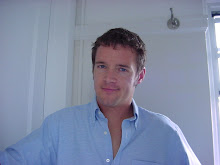And Then I Read 'Amor'.
In the whirlings of the days
and noise of the nights
attentions flung from paten to plate
and glasses klink, and laughter flies,
I felt it steady: a constant, quiet mass.
And I longed to rest on it
to run up on the welcomed shoal.
To catch your glance was to melt the crowd
and part them. And your voice—
jabs and punch-lines softened to whispers;
an ocean floor stretched out to me vast
inviting
frightening
expanses to search and mine.
But I held treasures too fragile to risk
with whom I thought you were.
And you, with treasures too precious to entrust
to myself.
I’d fumbled before.
So your eyes over dark pints met my quick removal (less quick
as day passed to next),
“So then”-s and “Do you…?”-s, a short-lived reception
afraid that in a well-enjoyed chat in the statued nave
or in a bit-too-long return gaze
the fissures in my slip-shod dam would burst against
the flood of your own.
And all would know.
Afraid that your eyes were lying.
Afraid that they weren’t.
Afraid that your soul brewed with forces strong surpassing the frame
whose sturdy beauty was obvious to all—
until Neruda and the flutist of an Emerald tune
bowed low to honor the entrance of respect
somewhere among the six staggered bottles of red wine.
Forces once confirmed, I let the waters knock me down.
However lovely your eyes in that sea-harbor hue
they hadn’t prepared me for their power
to sink my soul in its base
and then search
and then reach
and then love
the unlovable in me.
Lips that many have dreamed to fall upon
poured forth a wisdom rarely heard
among the sons of men.
That form, undressed by lusts,
abused in cravings of a mind’s dark eye,
pushed tender purity into my own
misused
and misguided.
The heat in which I was healed.
And your hands? Your daunting hands—
trained for the kill—
they risked
to hold out your trembling heart to me
admitting to former pain
yet brave enough to love again
a mirror open, transfixed in heaven’s love
and an anchor of mine was laid that night in you.
Pray God—He’ll see the voyage through.
**********
One word written leaves too many left unsaid.
Say many? Then the poetry falls dead.
No word at all…the heart would break instead.
Imbolc 2016: imprisean pearsanta
-
[image: Imbolc]Is fada mé ag triall ar Imbolc, féile lae a bhíonn ar siúl i
mí Feabhra gach bliana i mBaile Bhuirne in iarthar Chorcaí. Ag Imbolc bíonn
c...
9 years ago



